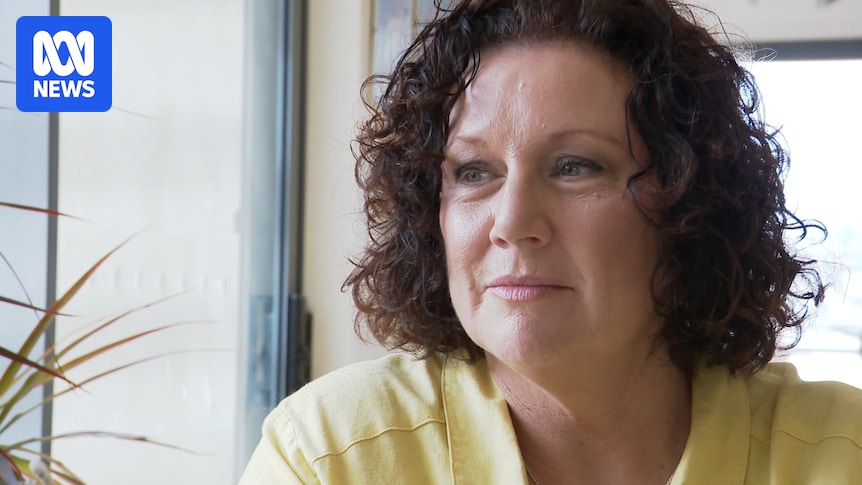Kathleen Folbigg has vowed to keep on fighting, describing a $2 million ex gratia payment as a “lowball” and “insulting” attempt to compensate her wrongful imprisonment.
Once labelled Australia’s worst female serial killer, Ms Folbigg was found guilty in 2003 of killing her four young children and spent 20 years behind bars.
In 2023, her convictions were quashed when new medical evidence emerged to suggest her children died of natural causes.
Last week, the NSW Attorney-General Michael Daley granted her the compensation payout, which has since attracted widespread criticism from legal and scientific experts for being “totally inadequate”.
Ms Folbigg was found guilty in 2003 of killing her four young children. (ABC News)
Speaking out for the first time, Ms Folbigg said the lack of transparency as to how the state government came to that sum has left her feeling “confused” and “shocked”.
“Is it set-up money? Or is it just an, ‘Okay, we need to get this off our books?’,” she said.
“It feels like it was a tick the box, let’s get this done sort of situation without too much feeling, empathy or understanding going on in the process.
“It’s pretty much a slap in the face.”
Ex gratia payments are made at the discretion of the government. Ms Folbigg applied for one in 2024.
‘There’s one more fight’
Ms Folbigg thought her “fighting days” would be over when she received reparations, but instead she felt like it was “go away” money.
“We’re all exhausted and tired, but it looks like there’s one more fight just yet,” she said.
Having missed what, she called “the best years of her life” in jail, Ms Folbigg had hoped the compensation would help her to be “comfortable for the rest of [her] life,” and provide her with some financial security.
“Realistically, I’ve got no option really to be getting [superannuation].
“I’m honest enough to say mental health care is going to be needed for the rest of my life after this, and that is not free.”
Ms Folbigg says she’s missed the best years of her life while in jail. (ABC News)
She addedhow her life-long dream to own a home has been crushed, as well as her wish to repay her pro bono legal team.
When asked how much the state government should instead have compensated her, she said she was unable to put a number on it.
“How do you put a figure on your life?” she replied.
Over two years on from her release, Ms Folbigg feels failed.
Still waiting for government apology
She claims NSW Premier Chris Minns has refused to sit down with her and her legal team to discuss compensation, and has not offered her an apology.
The price of wrongful imprisonment
“I’ve never had a ‘Terribly sorry you’ve gone through this Ms Folbigg and that’s a little bit concerning’,” she said.
On Monday, Mr Minns rejected suggestions the Attorney-General decided on that figure because he “isn’t convinced of her innocence,” instead doubling down on his previous comments that $2 million was all the state could afford.
“Obviously the Attorney-General would never have pardoned Kathleen Folbigg if there was any question about her innocence in the eyes of the law and that shouldn’t be forgotten as part of the government’s decisions here,” Mr Minns said.
“We don’t have $20 million, $30 million, $15 million just lying around — it necessarily has to come from other programs.”
The NSW premier doubled down on comments that $2 million was all the state could afford. (ABC News: Warwick Ford)
Despite conceding the sum does not reflect the length of time Ms Folbigg unjustly spent behind bars, Mr Minns reiterated the 58-year-old and her lawyers were free to sue his government if they wished to seek further compensation.
“When you’ve seen large-scale payments from the government … it’s usually, in fact as far as I know, only on the back of a settlement reached between the state and the individual as a result of civil litigation.
“This wasn’t a settlement, it’s an ex gratia payment.
“I understand there are people who contributed to Kathleen Folbigg’s release who were pro bono for her over that period of time, but I need to make a decision on whether the state government has to pay those lawyers, and I can’t justify it,” he said.
‘They existed, they lived, they died’
Ms Folbigg says she has struggled moving on from the death of her youngest daughter, Laura. (Supplied)
Ms Folbigg has always maintained her innocence over the deaths of her children Caleb, Patrick, Sarah and Laura Folbigg.
They all died when they were babies or toddlers between 1989 and 1999, in the state’s Hunter region.
While she managed to grieve their deaths “in a very different manner”, Ms Folbigg said she has particularly struggled to move on from her youngest, Laura’s passing.
“I think enough time has gone past … I don’t baulk at talking about them,” she said.
“They deserve the respect [of] being spoken about. They existed, they lived, they died.”
Two decades after she was wrongfully convicted, new genetic testing helped cast reasonable doubt over her guilt.
Ms Folbigg said that if she’s awarded further compensation in the future, she wants to help people with cases like hers, and bring genetic testing to the forefront of evidence.
She also wishes to support women who have experienced losing children.

